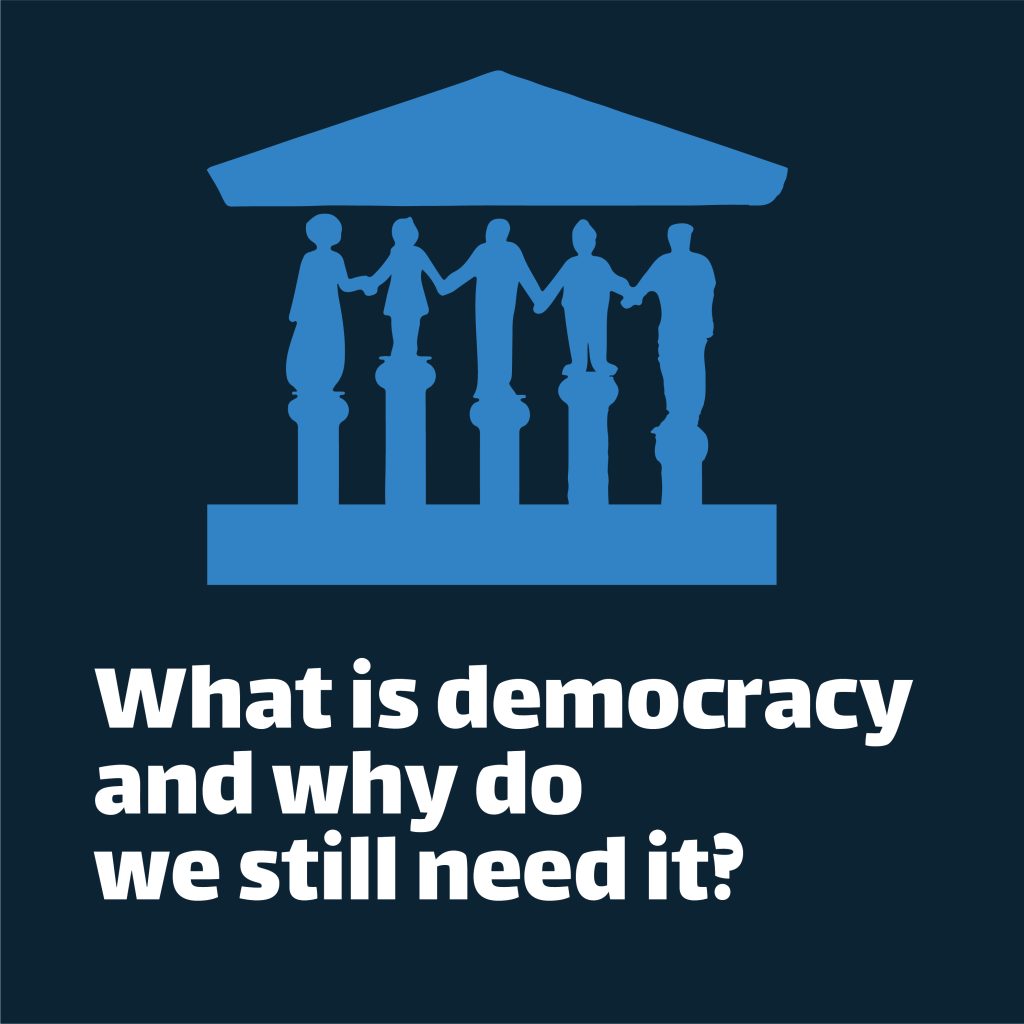We live in a world that is more interconnected and globalized than ever. To benefit in this interconnected world, we need to know our rights and duties. In this context, it might be hard, sometimes, to find effective ways to raise our voice, and to engage in matters that are apparently so far away from our home. It appears that the focus is shifting from “local” to “global”, and that we have no power in influencing matters that are happening worldwide.
In our democracy workshop, we challenge this perspective, by bringing the focus back on “local communities and participation”. We start from the assumption that to make worldwide change, it is necessary to start by engaging in our local communities, and learn how to interact democratically in local institutions. Our motto is “think global, act local”. We want to give the younger members of our society the opportunity to become global citizens by learning and exploring the fundamentals of democratic work and participation.
We promote volunteering and use Cooperative Learning (CL) activities to engage students to participate actively and independently in dialogue with their fellow students as well as local communities. We believe that cooperation is essential for learning from each other and thereby have a greater likelihood of gaining influence in a youth-democratic context.
In the workshop, we will look at what democracy is and the different ways in which it can be used in practice, so that students can experience and explore the motives that are connected and different ways to participate democratically in the globalized society.
Some of the questions we would like to shed light on could be, for example:
- What is democracy? And are there several types of different democracies?
- How does democracy work in both local and global contexts?
- What does Denmark get out of participating in global politics?
LEARNING METHODS
The workshop is design according to the official EU guidelines for Human Rights educations “Compass” and the Danish Højskole methodologies. Every activity is carefully designed by our expert team of facilitators and they are tailored to the age of participants and the special requests of each school.
The day would be structured according to the following:
- Energizer exercise and ice-breaker;
- Introduction on the topic of democracy and participation;
- Brainstorm exercise to allow the students to share their experience of democracy;
- Keynote speakers and examples from the world (Ukraine, Denmark, Italy, The Middle East, etc.);
- Interactive exercise, such as “the democracy tree”, “desert Island”, formal decision-making process simulations, group work, and action planning;
- Presentation of the work done by the students;
- Final remarks and evaluation to build future reflections.
LEARNING OUTCOME
The main goal of our workshop is to enhance student’s willingness to actively participate in democratic practices as youth now and as adults later on, becoming active citizens of the world. At the end of the day, we expect students to have gained a deeper insight into fundamental topics such as the link between democracy, peace, and social justice. Further, the aim of the workshop will be to equip students with practical experience to navigate democratic participation in a globalized world, as well as the tools to organize themselves and avoid absenteeism in the democratic society.

